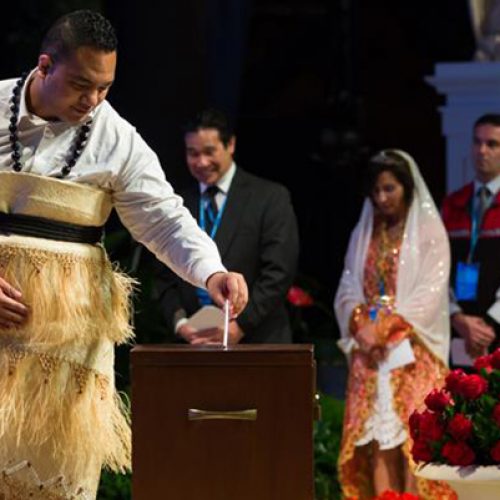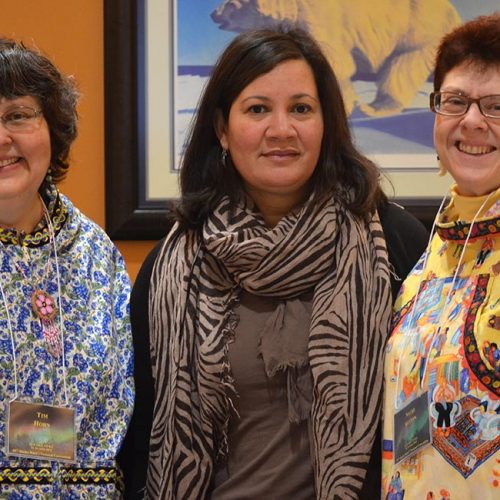“Know ye not why We created you all from the same dust? That no one should exalt himself over the other. Ponder at all times in your hearts how ye were created. Since We have created you all from one same substance it is incumbent on you to be even as one soul, to walk with the same feet, eat with the same mouth and dwell in the same land, that from your inmost being, by your deeds and actions, the signs of oneness and the essence of detachment may be made manifest.” Bahá’u’lláh
Gender Equality and the Advancement of Women
Peace is only possible, according to Bahá’í teachings, once women have been accorded full participation across all fields of human endeavor. Until such gender equality becomes reality, Bahá’í believe a climate in which international peace will emerge cannot be fully realized. The Bahá’í Writings state that, “Women and men have been and will always be equal in the sight of God.” Further, the teachings explain that “…God hath created all humankind in His own image, and after His own likeness. That is, men and women alike are the revealers of His names and attributes, and from the spiritual viewpoint there is no difference between them. Whosoever draweth nearer to God, that one is the most favored, whether man or woman.”
Human Rights
The Bahá’í Faith holds that, in terms of spiritual qualities or virtues, human beings are created in the image of God; that there is but one human family; and that all people share the same universal human rights. The Bahá’í Writings state that “an equal standard of human rights must be recognized and adopted. In the estimation of God all men are equal; there is no distinction or preferment for any soul in the dominion of His justice and equity.”
Bahá’ís endeavor to contribute to a just society where the rights of all people are valued and protected. In their own community life and in collaboration with civil society, government and international partners, they work to promote human rights in a number of areas.
Sustainable Development
Throughout the Bahá’í Writings, nature is seen as a divine trust that reflects many of the qualities and attributes of God and, as such, should be cherished. Like the adherents of other faith traditions, Bahá’ís are called upon to be stewards of the environment. Bahá’í teachings also stress that sustainable development depends on humanity’s acceptance of ethical and spiritual principles that foster economic, social and environmental well-being.
For instance, providing a strong basis for the work of Bahá’ís in sustainable development is the following statement from the Bahá’í International Community: “The profound and far-reaching changes, the unity and unprecedented cooperation, required to reorient the world toward an environmentally sustainable and just future, will only be possible by touching the human spirit, by appealing to those universal values which alone can empower individuals and peoples to act in accordance with the long-term interests of the planet and humanity as a whole.”
The Bahá’í Writings further explain: “Every man of discernment, while walking upon the earth, feeleth indeed abashed, inasmuch as he is fully aware that the thing which is the source of his prosperity, his wealth, his might, his exaltation, his advancement and power is, as ordained by God, the very earth which is trodden beneath the feet of all men. There can be no doubt that, whoever is cognizant of this truth is cleansed and sanctified from all pride, arrogance, and vainglory.”
United Nations
Whatever difficult “growing pains” the world must go through, Baha’is believe that peace is ultimately within the reach of the nations. Achieving this goal, however, requires an “organic change in the structure of society,” the relinquishing of age-old assumptions, and understanding that justice and unity are prerequisites to peace. As such, Bahá’ís believe that the United Nations represents a major effort in “the planetization of mankind,” and have supported its work since its creation. An authoritative Bahá’í statement asserts that the commitment to representative global governance must be grounded in the principle of the oneness of humanity, “which implies the establishment of a world commonwealth in which all nations, races, creeds and classes are closely and permanently united, and in which the autonomy of its state members and personal freedom and initiative of the individuals that compose them are definitely and completely safeguarded.”





